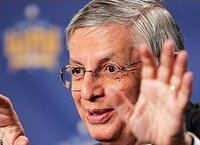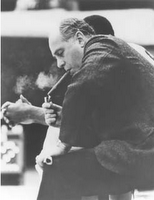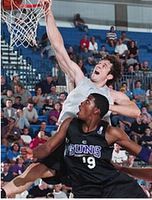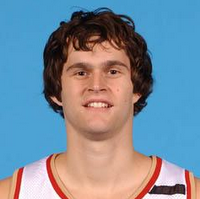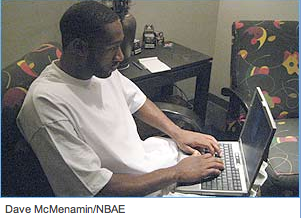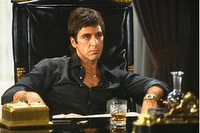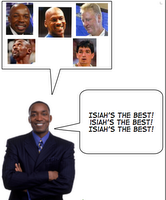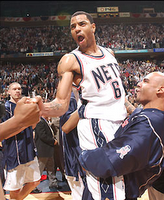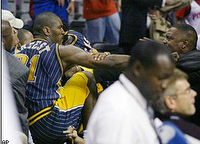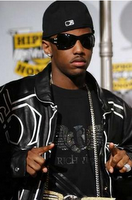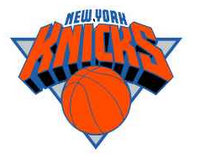Soul Influence – Basketball, Corporate Greed and the Corruption of America’s Youth by Dan Wetzel and Don YaegerThe premise of the book is that Nike and Adidas have upped the ante in the search for the next Michael Jordan creating a cesspool that corrupts all aspects of youth basketball. In the resulting “sneaker wars” no one comes out clean. High school coaches, AAU coaches, prep school coaches, college coaches, sneaker executives, family members and NCAA officials are all shady. Meanwhile, the sneaker corporations have
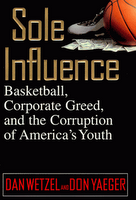
their own summer camps (meat markets), sponsor teams at numerous levels (AAU, high school, college) and even sponsor whole colleges. In the process free gear and money change hands while players are steered to camps and most likely schools. Wetzel and Yaeger conclude that the next Jordan will not be found. They believe today’s stars are spoiled by free gear, trips around the country and the world and never being told “No” from an early age. They point to Jordan getting cut from his high school team and
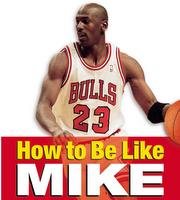
polishing his skills in anonymity. Meanwhile AAU tournaments are glorified AND 1 events. I am intrigued by their theory but feel they miss a crucial point. Michael Jordan was the first black athlete to be marketed in such an aggressive, fresh way. He had street cred, could appease the corporate crowd and his shoes and commercials were cool. Before Jordan there was no Jordan. Now the sneaker market has the Lebrons, Iversons, McGradys, Wades, Garnetts and so on. And the Jordans still exist. Hypothetically speaking if Kobe Bryant came out in 1984 and signed with Nike they'd be searching for the next Kobe. Provided he didn’t rape anyone of course. Overall the book included a number of interesting anecdotes and nuggets of information:
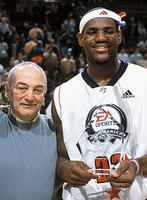
1. Nike started out as a true underdog. It gave free shoes to track athletes and hated smug, corporate, German based Adidas. Now Phil Knight roots for Brazil in soccer against the US because the Brazilians wear Nike. Interestingly the authors seem to do their best to avoid a Phil Knight witch-hunt. And Knight still comes off like a pompous jerk.
2. Sonny Vaccaro (pictured right with Lebron) is a huge part of the sneaker saga. He was a failed gambler who started the Dapper Dan Roundball Classic in 1965, which developed into the dream of all college basketball hopefuls. Thirteen years later he hooked up with a struggling Nike to take on then power Converse. Vaccaro traveled the country and wrote personal checks to coaches. Nike then wired Vaccaro the money and outfitted the teams. His ability to connect Jordan with Nike had huge consequences. Vaccaro eventually left Nike for unexplained reasons for a similar job at Adidas.
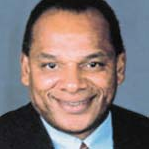
Steering Kobe to Adidas, symbolized by their draft day hug, remains one of Vaccaro's biggest accomplishments. George Raveling (head shot, left) eventually filled Vaccaro’s vacated Nike post. This is where it gets personal.
3. Raveling was a coach whose ties to Vaccaro go way back. They loved basketball, shared information and became close friends. Raveling was one of the first coaches Nike sponsored via Vaccaro. He was even Vaccaro’s best man. Now they don’t speak. Allegedly Raveling urged Vaccaro to steer the O’Bannons (Ed and Charles) to play for him at USC. Vaccaro refused, saying he never does such things. While it’s hard to believe that Vaccaro does not steer players, the O’Bannons definitely went to UCLA.
4. Tracy McGrady’s initial Adidas contract gave substantial money ($150,000 each) to his Mt. Zion coach and the Adidas rep that discovered him…annually
5. Wesley Wilson chose MCI (Nike) over Winchendon (Adidas) because of sneakers.
6. Regardless of your viewpoint it’s hard to argue that a lot of the players mentio
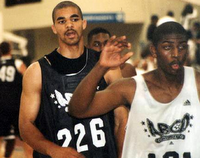
ned were names in college and/or the pros. McGrady, Kobe, Carlos Boozer, DeShawn Stevenson, Jonathan Bender, Keith Bogans, DerMarr Johnson, Marcus Taylor, Tyson Chandler, Lamar Odom, Jaron and Kareem Rush and Corey Maggete all make cameos. Although Johnson and the Rush brothers are cautionary tales of what can happen when athletes don’t develop discernable basketball skills/fundamentals.
7. Myron Piggie Sr. may be the shadiest individual in the whole book. That’s saying something. He coached the Rush brothers’ AAU team and loved his time on the Nike pay role. Prior to that Piggie was indicted for several drug charges (selling crack), assault with a deadly weapon on a DEA agent, and gun related felony accounts (attempt to kill, unlawfully exhibiting a firearm). Strangely he only did one year in jail.
8. The book came out in 1999 and devoted a whole chapter to Chamique Holdsclaw’s possible dominance of the female sneaker market. As far as I can tell that has not happened.
9. Professors were enraged by sneaker contracts with college and universities that forbade any kind of criticism of the company. This was particularly hard to take given the conditions in some of the Asian factories.
10. The bo
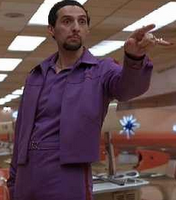
ok also touches on how pedophiles flock to coach youth sports. This is an issue in and of itself that is complicated when they are on the Nike or Adidas payroll. Background checks anyone?
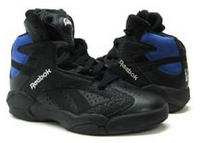
11. The story about Shaq visiting Nike with a scowl on his face and a Reebok jacket on his back is priceless. Of course Shaq was a flop in his attempt to rasie Reebok to Nike levels. Based on the Reebok Shaq Attack (pictured right) it's easy to see why.
12. During the Alonzo Mourning love fest last spring I wish someone recalled Zo's epic quote stemming from his difficulty in signing his first contract with the Hornets: "I work for Nike."
Overall this is an interesting book despite being only an average read. The authors’ goal is to outrage readers about the corruption that exists within youth basketball and urge the NCAA to close the loopholes that make it possible. Although according to Ric Bucher of ESPN,
good luck.Final Grade - C+
